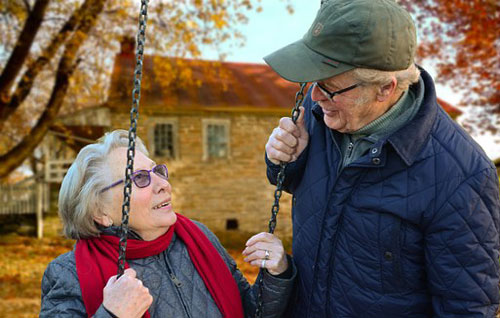Four Tips for Easing a Parent’s Transition to Assisted Living
Four Tips for Easing a Parent’s Transition to Assisted Living

Moving an elderly parent to an assisted living facility can be a difficult transition fraught with emotion. This is true even if a parent is in favor of the move. If a parent is resistant, it can become almost unbearable for both parent and child.
A parent moving out of their home may be struggling with the prospect of growing older, mourning the loss of their independence, and dreading leaving the place where they raised their family. In such situations, even if an adult child knows the move is necessary, that child may be overcome with guilt and begin second guessing the decision to uproot their parent.
All of these emotions are normal and, in most cases, temporary. The key is to give everyone involved enough time to settle into the new normal. Experts on aging say that it can take up to six months for a person to adjust to their new life in an assisted living facility.
“Change is always a big hurdle for the elderly person,” says our director of Physicians Choice Private Duty. “It takes a long time for them accept the move and then additional time for them to feel comfortable with their surroundings.”
During what can be a tough transition, it is important for adult children to focus on why the decision was necessary in the first place. Knowing that their loved one will be safer and healthier in their new home should get them through this period. Thankfully, there are ways to make the move to assisted living easier on all parties involved.
- Know when-and how often-to visit. Some parents will do better with frequent visits in the beginning. This may help to relieve the stress of feeling as if they are being abandoned or left alone. However, if a parent is using you as a crutch to avoid interacting with other residents or won’t go to the dining room without you there, for example, it may be best to pull back for a few weeks so they can find their own way.
- Anticipate setbacks. A parent may do well their first few weeks in their new home and then suddenly demand to move back to their old house. Or they may make friends quickly and then tell you that they are lonely. This is all normal and will get better over time. It will help during these setbacks to make sure your parent’s surroundings are familiar. When moving from a house to an assisted living facility there will be some possessions that realistically cannot come along but that doesn’t mean you should throw out all of their belongings. Photographs, quilts and pillows, and a rocking chair are all examples of things you can bring to make them feel more at home.
- Allow for some independence. Moving into an assisted living facility shouldn’t make your parent feel as if they have to give up their old hobbies or interests. If they love to bake, for example, make sure they have access to a kitchen. If they are used to getting together with their bridge club, arrange transportation so they can still attend meetings. It is important that your loved one never feels as if their life is now confined to the four walls of the assisted living facility.
- Be an advocate. If you think there are ways the staff at the assisted living facility can help your parent thrive, bring it up. Likewise, if something doesn’t seem right or your parent seems depressed or unhappy after a long period of time, don’t dismiss it as the senior blues. Make sure your loved one knows that you are there for them and that no matter where they are living, that will never change.
